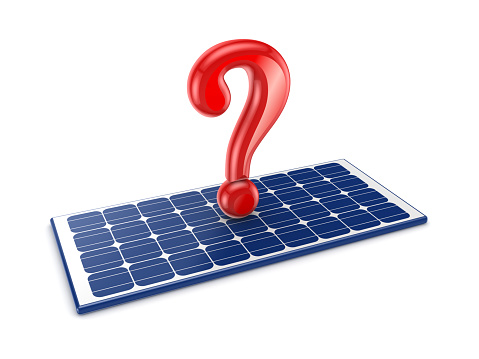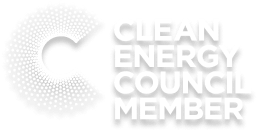Are you looking for a solar PV system for your property? Do you have an end number of questions in mind that need to be addressed? Do not worry we have it all covered. With years of experience in the solar industry, Solar Miner has come up with most frequently asked questions by the customers. We are here to get all your queries and doubts cleared. Read till the end to get, trust us, we have got all the queries covered.
Q1. Is solar energy reliable and powerful enough for my home or business?
Ans. More than 30% of Australian households now have rooftop solar PV. It means that one in every three households now have solar power to bring down their electricity bills. The country has reached to generating 10% of its electricity needs through solar power. To sum it up, solar energy is one of the smartest renewable energy alternatives for your property to reduce the electricity bills.
Q2. Will my solar panels generate electricity during cloudy, rainy, or snowy days? What about at night?
Ans. Your solar panels don’t need sunshine to generate electricity as much as they need direct, unobstructed access to the sun’s UV rays. Definitely, the production is going to be less during the cloudy days but it shall still be worth it as the solar will not completely go off. Your solar PV system cannot function at night due to absence of sun, however, a battery can be installed to reap the maximum benefits.
Q3. Do I have to go off the grid when I switch to solar energy?
Ans. In reality, you probably won’t want to go off grid. The practice is known as “islanding”, or when you connect your solar array to batteries so you’ll be able to power your home or business entirely on solar energy instead of using the utility company for power.
The thing is, this practice is incredibly expensive and inefficient for most people.
Batteries are not only expensive, they’re not as technically developed as solar panels. They also need to be maintained and replaced routinely.
Most solar adopters choose to stay on the grid out of convenience and money-saving.
When you stay connected to the grid, you’ll be able to generate credits with the electric company to lower the price of your bills.
Q4. How much will I really save on my electricity bills every month?
Ans. That depends on how much electricity your home or business uses, where you live, the rate your utility company charges for electricity, and several other factors.
Most solar providers aim to offset 70–90% of your monthly electricity bill, so that’s a good place to start your calculations.
Q5. How will switching to solar energy help me budget better?
Ans. Right now you don’t have any control over the electricity rate your utility company charges and they are set to reach new heights and rise continuously.
When you install solar panels on your property, you’ll be generating more electricity than you use from the utility company at the price of free.
Then you’ll also generate more than enough to sell back to the utility company as credits to further lower your monthly bills.
Q6. Will I qualify for rebates for switching to solar?
Ans. The Victorian government is currently offering rebates of up to $1,400 plus the option of an interest-free loan. There are various eligibility criteria for the same. Connect with the Solar Miner team to learn if you qualify for the same.
Q7. How does solar energy benefit the environment?
Ans. Solar power is a renewable resource, which means there’s so much of it freely available we never have to dig for coal or refine other toxic energy sources just to keep the lights on. Solar energy reduces your carbon footprint by decreasing greenhouse gas emissions (which contribute to climate change). Since it doesn’t produce any pollution, it also means we’ll have less harmful pollutants in our air, land, and water.
Q8. How will I know if my property is suitable for solar panels?
Ans. In Australia the best place for a solar array will be a North-facing area of your property with very little obstruction. That means no tall buildings or trees in the way and no shade from chimneys or neighbouring houses to block the sun’s rays. However, north east and north west are equally suitable for solar installation.
Q10. Can I export power on one phase and consume it on another phase?
Ans. Yes, you could export power on one phase and consume power on another, but that isn’t how your meter will read and report what is occurring. More importantly, it’s not how you will be billed. Your meter is designed to look at all three phases on a net basis. So if you were sending 3kW back on phase one and consuming 1.5kW on each of the other two phases, it would return a net of 0kW rather than 3kW import and 3kW export. So there’s nothing to worry about from a billing/financial point of view if you have three-phase power.
Q11. Do I need to install solar batteries with my solar system?
Ans. Solar power systems that include solar batteries, known as solar-plus-storage, are increasingly popular, but can be pricey. Luckily, batteries are not necessary for most solar homeowners. As long as you are connected to the grid, your solar system does not need a battery: excess power goes back into the grid, and you can draw from the grid if you need more electricity than your panels can generate.
Q12. How long does my grid connected solar system last?
Ans. Solar Panels: minimum 10 year product warranty and 25 year performance guarantee. Inverter: 5 – 10 year warranty. Mounting System: 10-year product warranty (manufacturer). Workmanship: 5 year warranty on workmanship (installer). These are basic warranties of the system, so the system shall definitely last for this specified period.
Q13. Should I choose monocrystalline, thin film or polycrystalline solar panels?
Ans. Between monocrystalline and polycrystalline there isn’t a lot of difference. However, a monocrystaline tend to produce more electricity than polycrstaline and are latest technology panels.
Q14. What happens with grid connect systems during a blackout?
Ans. The grid connected inverter will automatically shut itself off within a few milliseconds of a blackout. This avoids the potential of a dangerous “brown-out” in your home and to prevent back feeding into the grid. Therefore even though you have a solar system during a blackout you will not have power available. If you want to keep on having electricity available during a blackout then you would need back up batteries. This will add to the cost of the system.
Q15. How much space do you need?
Ans. Most of the Australian roofs are suitable for solar panels, however, the space constraint needs to be talked with a solar specialist. Speak to one of our solar consultants at Solar Miner today and know if you have enough space to install solar within a minute along with an obligation free quote.
Q16. Is there any maintenance?
Ans. With a grid connected system, there is very little maintenance. Electronic components should be maintenance free. However, it is advised to get your solar PV system checked once in 5 years through your solar company or local licensed electrician to ensure it is working fine.
Q17. What is the difference between solar power and solar hot water?
Ans. Solar panels take light from the sun and make electricity. Solar hot water systems take heat from the sun and heat water. It is easy to remember: Heat from the sun heats the water and Light from the sun turns on the lights.
Q.18. What can help me decide the right solar retailer?
Ans. You might come across various solar companies, solar products and quotes. However, with the magnitude of companies in the Australian solar market it can be difficult to select one that provides value for money. It is recommended to install your panels through a CEC approved solar retailer and consider reading our blog to learn our achievements and why choose Solar Miner?
Q 19. How important is it and what inverter should I install?
Ans. Inverter is as important as the panels. A solar inverter converts DC (Direct Current) electricity into AC (Alternate Current) which can be used in the home to power the electrical appliances. Did you know? Inverter is the component that is more likely to malfunction over the lifespan of solar and thus the decision needs to be taken after careful research. If you are confused about what brands to install, do not worry we have it all sorted for you. Consider reading our blog over the same best solar inverter brands you can install in 2022.
Conclusion
Our objective is to provide low cost environmentally friendly and innovative forms of electrical energy to residential and commercial consumers through highly efficient and cost effective energy generating systems. Share your queries with our solar consultants and get all your questions answered. Solar Miner serves across nations, to name a few cities we serve in Melbourne, Geelong, Ballarat, Bendigo, Mildura, Warrnambool and Wangaratta.






